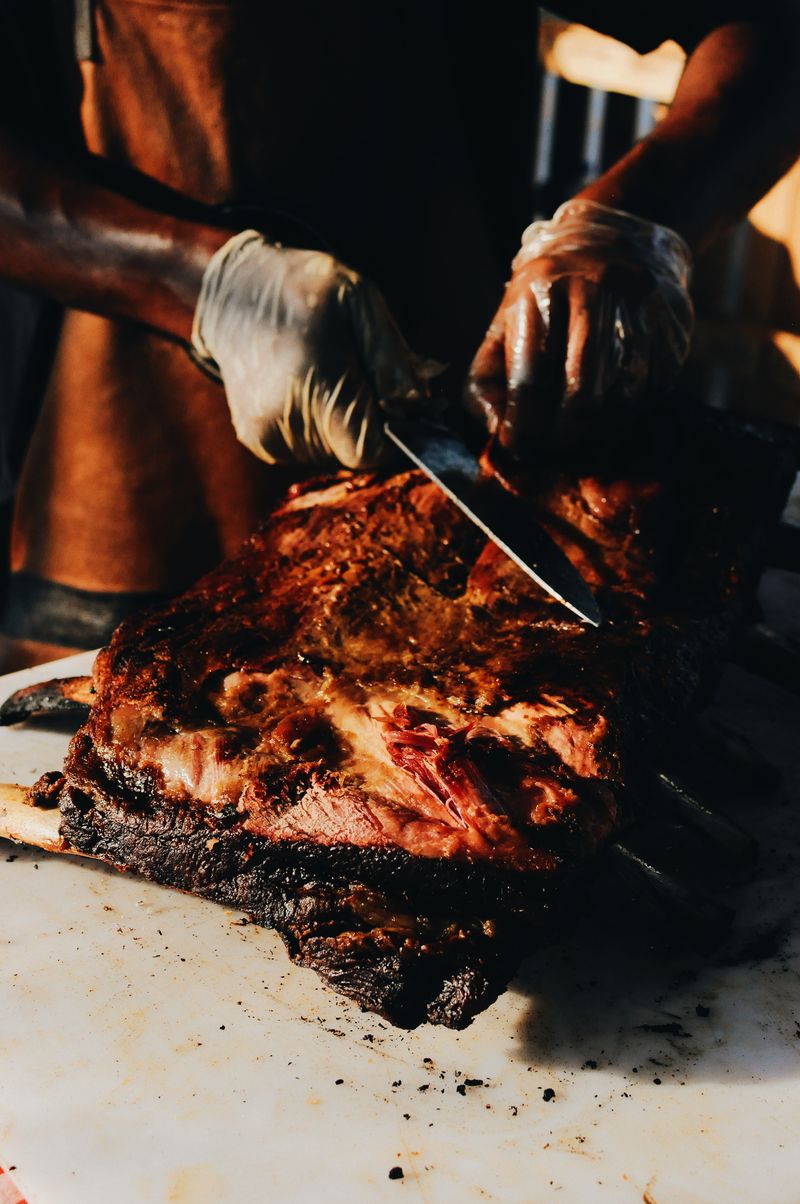The British Miracle Meat: A Satirical Commentary on the Cost of Living Crisis
A Unique Approach to Television Programming
The recent Channel 4 documentary, “Gregg Wallace: The British Miracle Meat,” takes viewers on a satirical journey into a world where human cells are cultivated to create meat substitutes. Despite its shocking premise, the program cleverly serves as a critique of the escalating cost of living crisis that many individuals and families in the UK face. While the show may not be subtle, its intention to capture the attention of a broader demographic and ignite a discussion about these pressing issues is well-executed.
Exploring the Process and Potential Solutions
The documentary begins with Gregg Wallace visiting a food technology firm in Lincolnshire, where meat is produced from human cells. The process, which is relatively new and was previously restricted by EU law, shows how this revolutionary meat can be grown in nutrient-rich vats. The resulting meat is then tested and deemed to be a remarkably fine substitute for traditional meat products. These findings spark the question: Could this unconventional approach be part of the solution to the cost of living crisis?
Wallace takes the opportunity to explore the quality of the meat by bringing three steaks, each from a different donor, to Michel Roux Jr. at Le Gavroche. This investigation opens up a conversation about the potential influence of provenance on the quality of the meat. Surprisingly, the third steak, which is part of a premium line with undisclosed details, stands out as the best. This revelation piques viewers’ curiosity, but the subsequent twist leaves no room for doubt.
A Dark Twist and the Moral Implications
The CEO of the company, Tamara Ennett, leads Wallace to the donor facilities, where a 67-year-old retired receptionist named Gillian is about to undergo an extraction surgery. It becomes apparent that the “British Miracle Meat” is sourced from under-sevens, otherwise known as babies and toddlers. The shock factor intensifies when Wallace is confronted with toddler tartare canapés and a glimpse into the children’s facilities.
The satire reaches its peak as Wallace’s trademark joviality gives way to uneasiness. He questions whether there will be moral objections to this product once it becomes public. Ennett dismissively mentions positive test results and insists that consuming children is a likely path for a country grappling with a cost of living crisis. The program expertly plays with themes of sacrifice, desperation, and societal attitudes toward wealth inequality.
An Editorial Perspective
This unconventional documentary undoubtedly raises ethical concerns and moral dilemmas. While the satirical nature of “Gregg Wallace: The British Miracle Meat” may not be everyone’s cup of tea, it urges viewers to pause and reflect on the underlying issues it addresses. By presenting a grotesque alternative, the program prompts viewers to confront the stark realities of the cost of living crisis and its potential consequences.
However, it is essential to emphasize that the content of the program is entirely fictional and should not be taken literally or as a call to action. The use of satire is deliberately meant to shock and engage viewers in a thought-provoking discussion about society’s challenges.
Philosophical Reflection: The Role of Satire in Social Commentary
Gregg Wallace’s documentary taps into Swiftian sensibilities, drawing inspiration from Jonathan Swift’s “A Modest Proposal.” Both works use satire as a vehicle to critique societal issues. “Gregg Wallace: The British Miracle Meat” functions as a modern-day parable, aiming to provoke contemplation rather than to propose cannibalism as a solution.
Satire has been historically employed as a potent form of social commentary, allowing artists and thinkers to challenge the status quo and offer alternative perspectives. By juxtaposing the grotesque and the everyday, satirical works expose absurdities and prompt critical thinking. The documentary pushes the boundaries of acceptable discourse to provoke a reaction from viewers, compelling them to examine the underlying socioeconomic issues from a fresh perspective.
Advice: Engage in Meaningful Conversations
As viewers grapple with the aftermath of “Gregg Wallace: The British Miracle Meat,” it is crucial to engage in earnest discussions about the cost of living crisis. Satire has the power to awaken dormant empathy and encourage concrete actions for societal change. While the documentary’s portrayal of consuming children is fictional, it prompts us to consider the underlying inequities and fosters a dialogue about finding real solutions to pressing problems.
By talking openly and constructively about the cost of living crisis, we can address issues such as wealth inequality, stagnant wages, and unaffordable essentials. Instead of focusing on fantastical solutions, let us seek to implement practical measures that ensure a decent quality of life for all. Taking inspiration from satirical works like “Gregg Wallace: The British Miracle Meat,” we can challenge prevailing narratives and work towards a more equitable society.

<< photo by Desativado >>
The image is for illustrative purposes only and does not depict the actual situation.
You might want to read !
- Outrage Ignites: Channel 4 Fans Threaten Ofcom Complaints Over Gregg Wallace’s Actions
- “The British Miracle Meat”: A Review of Gregg Wallace’s Culinary Journey, Blending Reality with Black Mirror-esque Intrigue
- The Dark Side of Artificial Intelligence: A Review of “Talk To Me”
- The Dark Side of Investigative Journalism: Greg Wallace Explores Human Meat Harvesting at Good Harvest Factory




